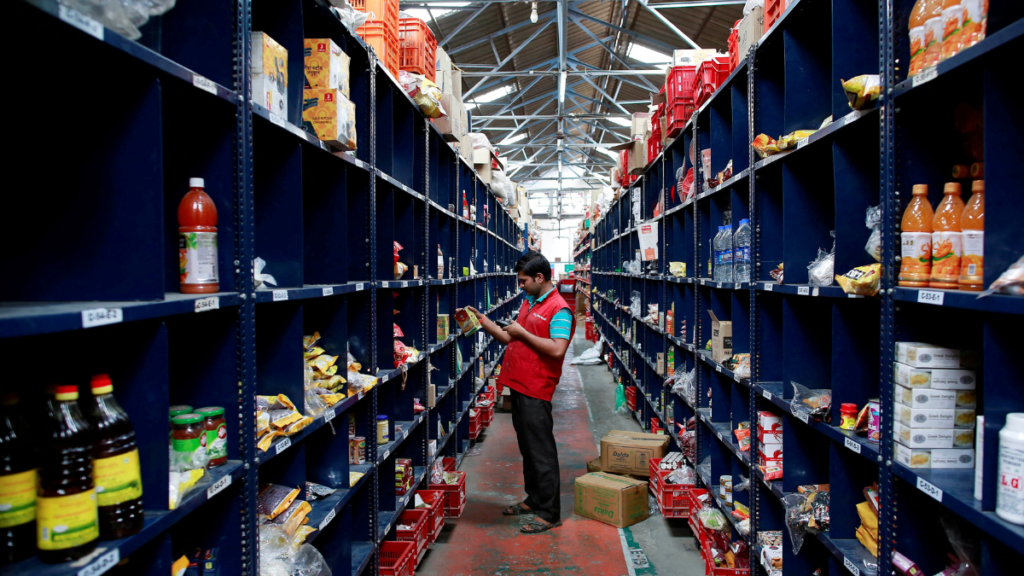The world has made a major shift from traditional ways of operating towards fully embracing digital schemes and the opportunities within them. This has encouraged the development of various sectors such as e-commerce, which allows toy retailers to transact online. Increased mobile penetration and internet connectivity has led to more people buying and selling on online-oriented platforms, ultimately leading to accelerated revenue from the industry.
To be clear, e-commerce (electronic commerce) is the buying and selling of goods and services that involves the exchange of funds over the internet. This is usually done with or without proximity. E-tailers can take advantage of the logistics provided to sell to people scattered all over the world. This form of business is driven by advancements in technology such as websites, social media, and mobile applications.
The COVID-19 pandemic has had a major impact on the growth of e-commerce, which had previously seen moderate engagement rates, especially for giants like Amazon and eBay. Extended stay-at-home orders have caused a surge in demand for products and services, leading to a surge in online business. Toy retailers have created platforms such as Instagram for sales. Online stores allow customers to purchase and pick up products at their location, on e-vendor-specific terms. The U.S. Census Bureau estimated global e-commerce sales at $284.1 billion in 2020, but this figure has since been surpassed due to widespread adoption in brick-and-mortar stores.
The growth of e-commerce and technology has brought about a number of challenges that are impacting global business operations and raising concerns for business owners around the world, including:
Limited product and consumer experience:
E-commerce is a digital platform where products and services are sold online, where customers browse and analyze the services to a limited extent. This is different from physical purchases where the customer can touch the product. For example, a customer may buy a large toy car online, but when a small car arrives, they may be disappointed and their expectations are not met. This is especially a problem in the toy industry in Africa, where customers often have to pay to return products they don't want, which reduces their trust in the toy company.
Banking and Payment Restrictions:
E-commerce payment platforms are inadequate and problematic, leading to confusion for buyers and sellers. Consumers often seek “cash on delivery” payment methods, potentially resulting in losses for vendors and toy business owners. Inadequate data, internet connectivity and declining consumer trust contribute to the challenges facing the e-commerce toy industry.
Also read: Boosting rural economies through e-commerce
Regulatory concerns:
E-commerce is plagued by unregulated policies, allowing anyone to operate without proper checks. Fraudsters often scam victims, stealing their money and causing customer trust to erode. To combat this, strict online censorship by associations and accreditation boards for merchants are needed. This will safeguard consumer trust and reduce negative perceptions of the industry.
Technology and Cybersecurity Threats:
E-retailers store consumer data and transactions on their websites to enhance the shopping experience and customer retention strategies. However, poor cybersecurity can lead to fraudsters hacking, causing business disruption and irreparable losses. Hacked sites can steal consumers' card details, affecting brand reputation.
solution
Customer Trust and Satisfaction:
The challenges above highlight the underlying causes of declining consumer trust and confidence. However, with good customer service, you can put in place an effective communication strategy, offer clear purchasing and easy return policies, display customer reviews and testimonials, and publish high-quality product images and descriptions. This will build a strong brand reputation, and if done consistently, consumers will perceive your brand as trustworthy and customer-centric, ensuring trust.
Media Literacy:
Media literacy is the ability to access, analyze, and evaluate media content and processes. Media literacy benefits both e-commerce buyers and sellers by enabling the critical evaluation of information, reducing fraud, and allowing consumers to effectively research and compare products. E-retailers can create more effective marketing strategies by understanding their competitors' tactics.
If media literacy is promoted by introducing it as a compulsory subject in basic education institutions, the e-commerce environment will be more transparent, safe and user-friendly. Savvy consumers will be better equipped to deal with the complexities of online shopping, and businesses will benefit from a more informed and trusted customer base.
Regulatory Review:
Nigeria's National Information Technology Development Agency Act (NITDA) and the Nigerian Communications Commission should revise their e-commerce policies to mitigate the challenges faced by e-retailers. Introducing a certification stamp on e-retailer websites will instill consumer trust and confidence, reduce online fraud, and have a positive impact on the e-commerce environment. This will require a rigorous verification process by these agencies.
Data Connectivity, Infrastructure, and Advancements:
Nigerian e-commerce must implement AI systems for 3D product testing and establish a robust data infrastructure for stable, high-speed networks. Advanced digital security, including strong algorithms for external protection and two-factor authentication systems, are also essential for the smooth operation of payment platforms and AI-related technologies.
The influx of e-commerce since the COVID-19 pandemic has significantly transformed the industry, bringing both opportunities and challenges that have put a strain on business owners' overall operations. Therefore, to thrive in the industry's evolving environment, businesses need to address the myriad challenges facing the industry by maximizing operational efficiency and delivering exceptional customer experiences.
Omotola Lawson is a Nigerian toy distribution entrepreneur and government certified instructor.



